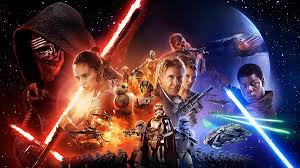I finally did it. After months of internal debate, and many wild swings back and forth, the needle at last crossed the critical threshold. A decision has been made. I bought a new desktop Mac. It arrives next week.
For those interested in the tech specs, I purchased a top-end 5K iMac, with an upgraded processor, 16GB of RAM and the 512GB SSD. To handle additional storage requirements, I have an OWC ThunderBay, which will house the drives currently in my Mac Pro.
The Mac Pro in question is a “cheese grater” model from 2009. You heard correctly. This powerhouse has been my primary computer for the last seven (7) years! I’m using it right now to compose this article. This is, by far, a personal record. I haven’t kept another Mac on my desk for more than three years since I bought by first Mac back in 1984.
How did my Mac Pro manage to survive so long? Mainly because of its superb and easily accessible internal expansion options (4 hard drive bays, 2 optical drive bays, RAM slots and PCI card slots). This far exceeds anything that Apple currently offers (Apple has essentially eliminated internal expansion from its line-up). Expansion capability has allowed me to keep pace with the most critical technological advances. Over the years, I’ve upgraded the RAM, added newer higher capacity hard drives and an SSD drive. While still not as fast as current top-end Macs, my Mac Pro remains fast enough to comfortably move along as I do demanding tasks such as editing iMovie files.
Sure, it’s missing some niceties — no Thunderbolt, no USB-3, no Retina display. And it’s a relatively noisy heat-generating behemoth that can warm up my office better than a space heater. But it gets the job done.
As for software, Apple still supports this Mac Pro for running the latest El Capitan version of OS X. It doesn’t support every new feature; it won’t work with Continuity for example. And when I compare it to my wife’s 2014 iMac, it’s clear that the Mac Pro’s software/hardware combination is significantly more prone to bugs and glitches. But it runs and works very well most of the time.
On the one side, the thought of losing the Mac Pro’s internal expansion options held me back from upgrading. On the other side, the promise of forthcoming major hardware additions, such as Thunderbolt 3 and USB-C, similarly convinced me to keep delaying an upgrade. Plus, I was immobilized by indecision as to which storage option to choose: Fusion drive vs. one of the SSD drives.
But, in the end, I decided it was time to move on. The lure of the current new technology finally brought me to the tipping point. The speed and upgraded capabilities of the Skylake processor, the new super-fast SSD drive, the incredible Retina display — all packaged in an attractive compact lightweight design — I could no longer resist. Seven years was long enough. If a much improved iMac comes along later this year, I’ll worry about that when the time comes. I’m ready for a change now!
Still, I’ll miss my old Mac Pro. We’ve been together for a long time. So, before we part, allow me to bid the machine one last fond farewell: So long old friend. It’s been great knowing you. I doubt we will ever see the likes of you again.

